Molly Howard and Donovan Fenton talk issues at Hancock Town Library
|
Published: 04-22-2024 12:44 PM
Modified: 04-22-2024 2:30 PM |
New Hampshire state representatives sent 1,400 bills to the Senate for deliberation this year, according to state Rep. Molly Howard of Hancock, who was joined by state Sen. Donovan Fenton of Keene at Hancock Town Library Wednesday evening to discuss issues with residents.
Howard, whose district includes Hancock and Greenfield, serves on the House Environmental Committee, and said that the state’s landfills are currently a hot-button topic.
“We have enough landfills in New Hampshire to take us out to 2034,” she said. “Yet Casella has an application in for [a landfill in] the north country, up by a town called Dalton.”
Howard said the committee had tried to pass a bill to slow down or stop the proposed landfill, but “lobbyists came in and shut us down.” In this case, she said a lobbyist claimed Gov. Chris Sununu would veto any effort to block the landfill. Casella’s application is currently being in court.
Fenton -- whose district includes Dublin, Hancock and Peterborough – added some context, saying that 50% of all trash going into New Hampshire landfills is coming from surrounding states, who have been more progressive in their waste-management process.
“Massachusetts’ solid waste plan is to ship it to us,” he said. “Same with other states around us – and we’re just accepting their trash.”
Fenton said that limiting out-of-state waste would go a long way in ensuring the longevity of our existing landfills, but New Hampshire’s Interstate Commerce Clause prevents the state from denying business from other states.
“We have a very business-friendly administration,” Howard said. “And [Casella is] a business.”
Article continues after...
Yesterday's Most Read Articles
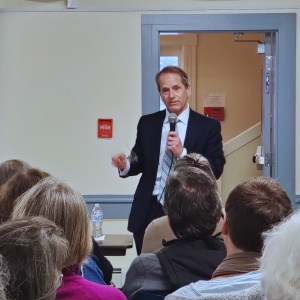 Frank Edelblut speaks at Dublin Education Advisory Committee forum
Frank Edelblut speaks at Dublin Education Advisory Committee forum
 Francestown Academy Coffeehouse is in its second year
Francestown Academy Coffeehouse is in its second year
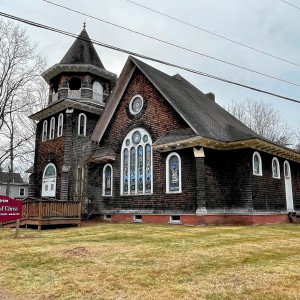 Petitioners seek special Town Meeting regarding tax lien on Antrim Church of Christ
Petitioners seek special Town Meeting regarding tax lien on Antrim Church of Christ
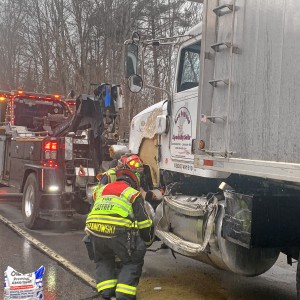 UPDATE: Drivers identified in Jaffrey dump truck crash
UPDATE: Drivers identified in Jaffrey dump truck crash
 Alan Edelkind defends actions on proposed ConVal reconfiguration
Alan Edelkind defends actions on proposed ConVal reconfiguration
 Jaffrey Civic Center hosting ‘Two Tours’ exhibit
Jaffrey Civic Center hosting ‘Two Tours’ exhibit
Howard and Fenton said there were several bills under deliberation that would help mitigate this issue, including the establishment state-owned landfills, so New Hampshire would have more control over whose waste they accept.
There was a discussion, prompted by a question from the audience, about the role of lobbyists in the state’s legislative process. Howard expressed frustration over lobbyists’ influence, but said, “We’re fighting the good fight, there are just some things that are pretty entrenched.”
Fenton added that hearings are public, so they couldn’t deny lobbyists’ presence, and that lobbyists were actually a heavily respected, and therefore regulated, part of the state’s legislative process. He explained they are identified in hearings by orange name tags, and that they bring important representation and input from their respective industries.
Fenton also touched on bills he had introduced to help farmers after excessive flooding damaged their farmland last summer. He said extreme weather patterns would continue to impact the state’s farmers, which would ultimately effect agricultural tourism and therefore the state’s revenues.
As a result of decreased revenues and tax cuts, such as the reduction of the state’s interest and dividends tax, which previously sent around $160 million into the state’s budget, New Hampshire was headed for a “fiscal cliff,” Fenton said, and property tax-payers would be increasingly responsible for supporting things like public education.
Fenton and Howard also discussed the issue of housing, and singled out a bill that would incentivize landlords to accept Section 8 housing vouchers from low-income individuals. Currently, a landlord who accepts a Section 8 voucher has a two-week review period where the state approves the voucher, but is unable to accept payment until after the review process. The bill would have the state compensate the landlord for this period so they do not lose income during those two weeks.

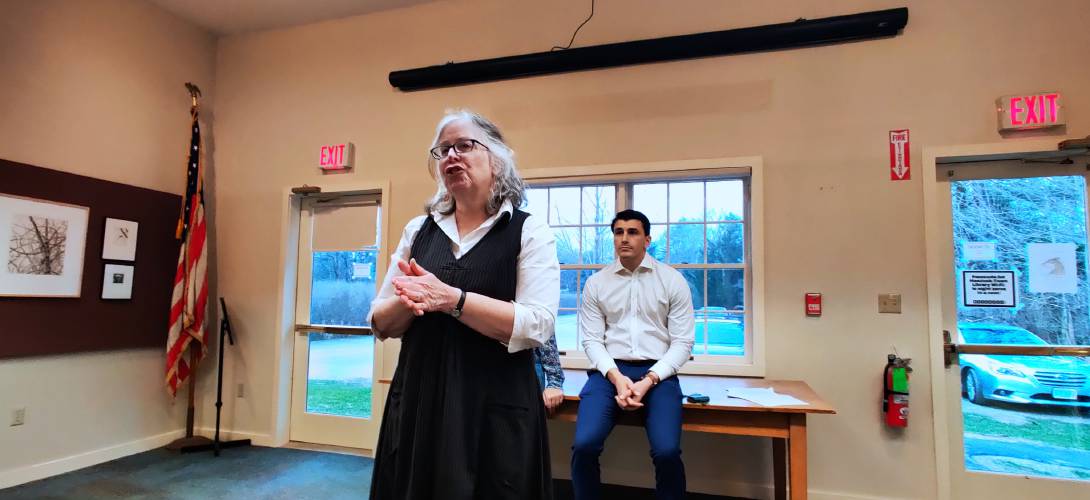
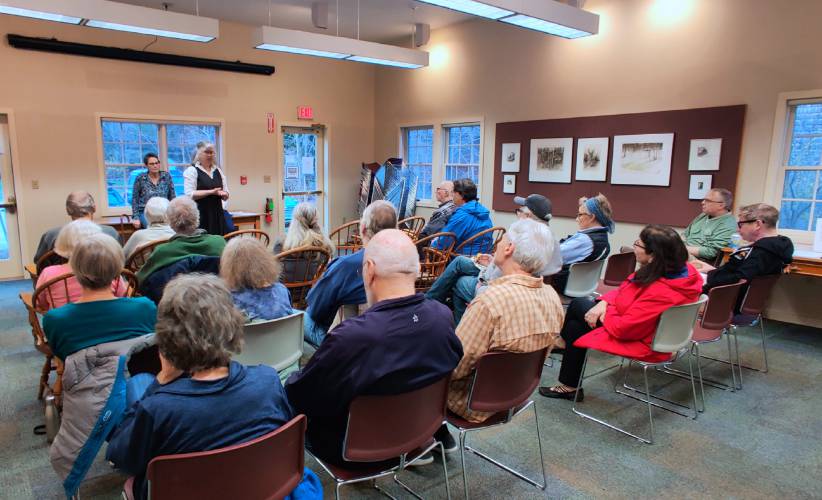
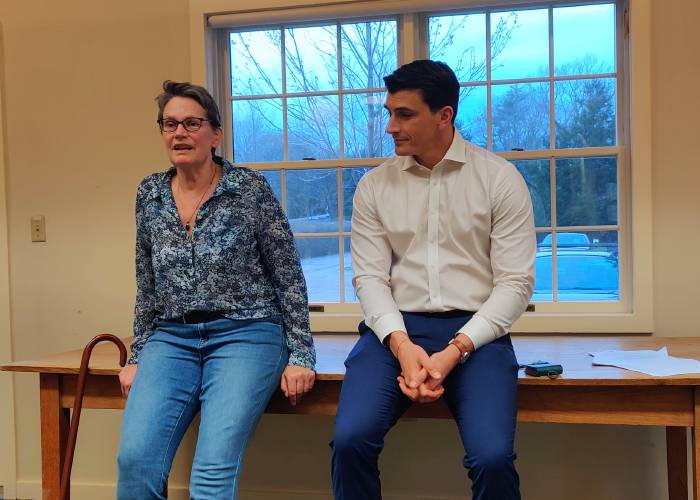
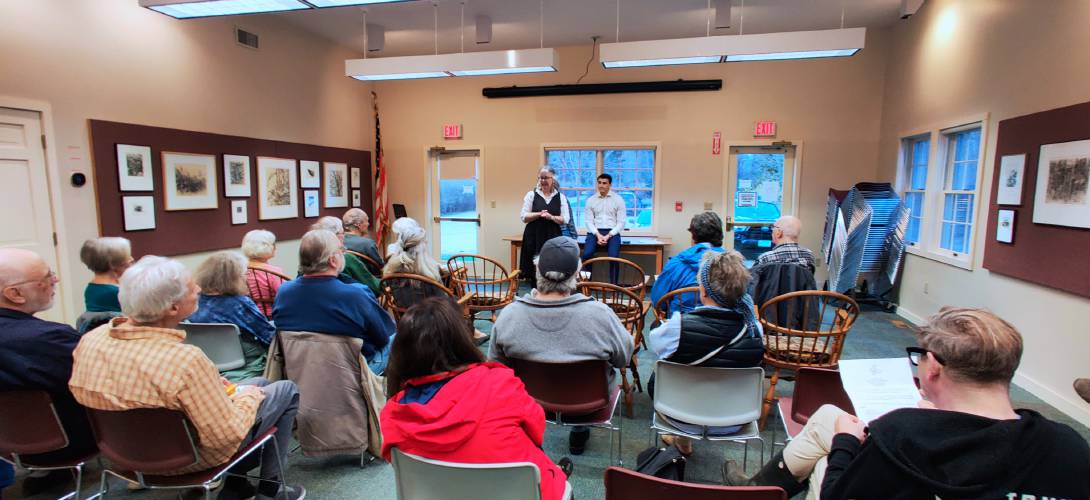
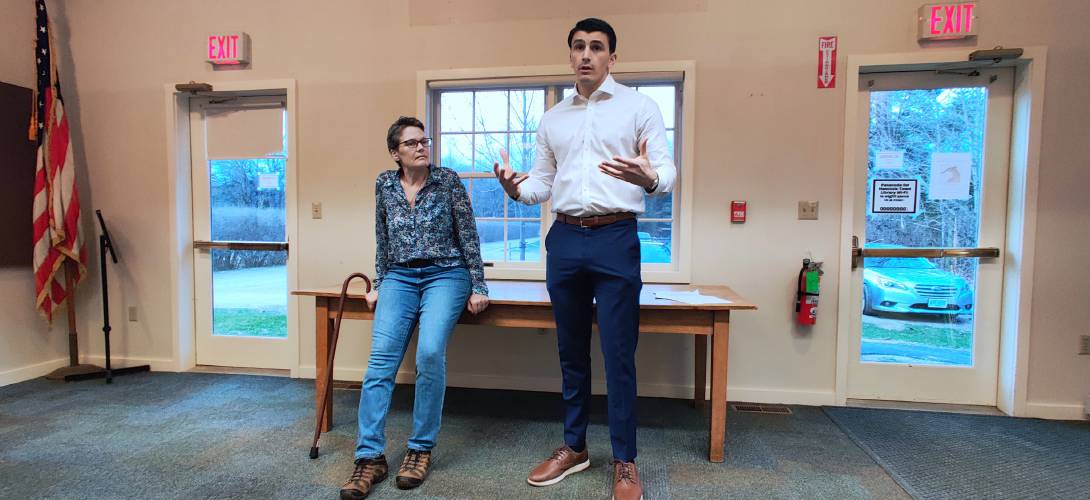
 Gail Hoar: Words About Wilton – Lessons while walking
Gail Hoar: Words About Wilton – Lessons while walking New photography studio opens on Jaffrey Main Street
New photography studio opens on Jaffrey Main Street State of the Schools – Budget challenges, but lots to celebrate at Mascenic
State of the Schools – Budget challenges, but lots to celebrate at Mascenic Jarvis Coffin: Off the Highway – Liver free or die
Jarvis Coffin: Off the Highway – Liver free or die
